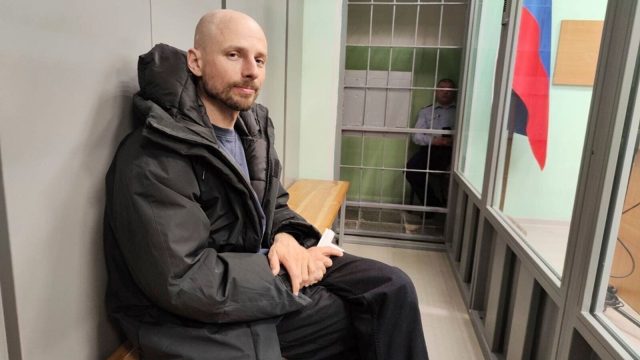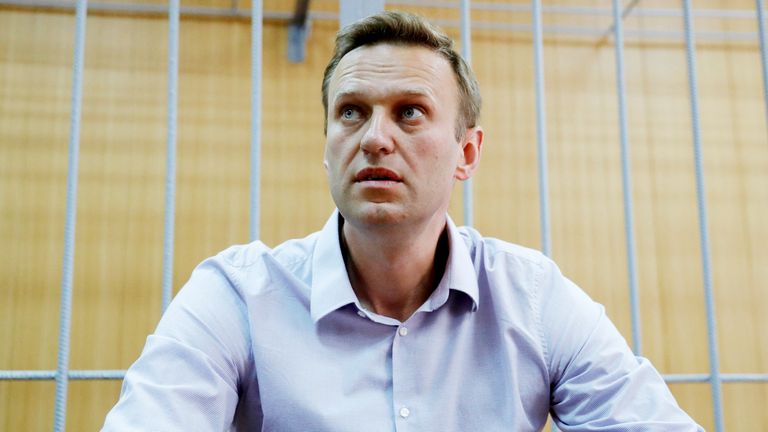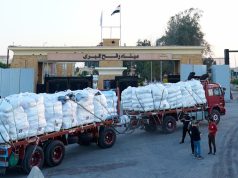Two Russian journalists could face at least two years in prison after they were arrested on “extremism” charges, accused of working for a group founded by the late Russian opposition politician Alexei Navalny.
Konstantin Gabov and Sergey Karelin are accused of preparing materials for a YouTube channel run by Navalny’s Foundation for Fighting Corruption, which has been outlawed by Russian authorities.
Russian courts have ordered them to remain in custody pending an investigation and trial.
They will be detained for at least two months before any trial begins.
They face a minimum of two years’ jail time and a maximum of six years for alleged “participation in an extremist organisation”, according to Russian courts.
Both journalists deny the charges.
Follow live: Tajikistan issues temporary travel ban to Russia
The journalists are the latest to be arrested amid a Russian government crackdown on dissent and independent media that intensified after its full-scale invasion of Ukraine.
The Russian government passed laws criminalising what it deems false information or discreditory statements about the military, effectively outlawing any criticism of the war in Ukraine.
Read more from Sky News:
Ireland pledges emergency law to send asylum seekers back to UK
Second man dies after taking ‘unusually strong batch’ of heroin
Mr Gabov, who was detained in Moscow, is a freelance producer who has worked for multiple outlets, including Reuters, the court press service said.
Mr Karelin, who has dual citizenship with Israel and has previously worked for The Associated Press, was detained on Friday night in Russia’s northern Murmansk region.
“The Associated Press is very concerned by the detention of Russian video journalist Sergey Karelin,” the AP said in a statement. “We are seeking additional information.”
Their arrests come after Forbes journalist Sergei Mingazov was detained on charges of spreading false information about the Russian military on Friday, according to his lawyer.
A number of journalists have been jailed in relation to their coverage of Mr Navalny, who died in an Arctic penal colony in February.


















